It is not very unusual to feel down and energyless once in a while, as our emotions can be easily influenced by many factors around us. However, it could be troubling, if those depressed feelings start to interfere with daily tasks or responsibilities.
Some people might experience difficulties in talking to others or carrying out their duties when they feel depressed. This is when a visit to a mental health therapist is recommended if the depressed person is willing to improve their state.
In a conservative country like South Korea, however, seeing a therapist is not a common tradition and is often rather avoided. Therapeutic sessions have been long considered as “showing your inner weakness” to a stranger. Allegedly, some companies even gave penalties to job applicants who kept a medical record of seeing a therapist — which is now defined as an illegal act in the country, thankfully.
Keeping one’s depression to oneself often leads to an unexpected tragedy. For example, South Korea is a country that is notorious for the high suicide rates. According to Statistics Korea, 24.6 deaths out of 100,000 inhabitants died from suicide in Korea in 2019, which is the highest among the records of the Organisation for Economic Cooperation and Development (OECD) member states. Although the motives vary, many included relationship issues, financial or health problems.
For people who want to deal with their mental illness in a more private, accessible way, several start-ups introduced therapeutic services that can be used at home. Their goals are simple: they want people to become happier.
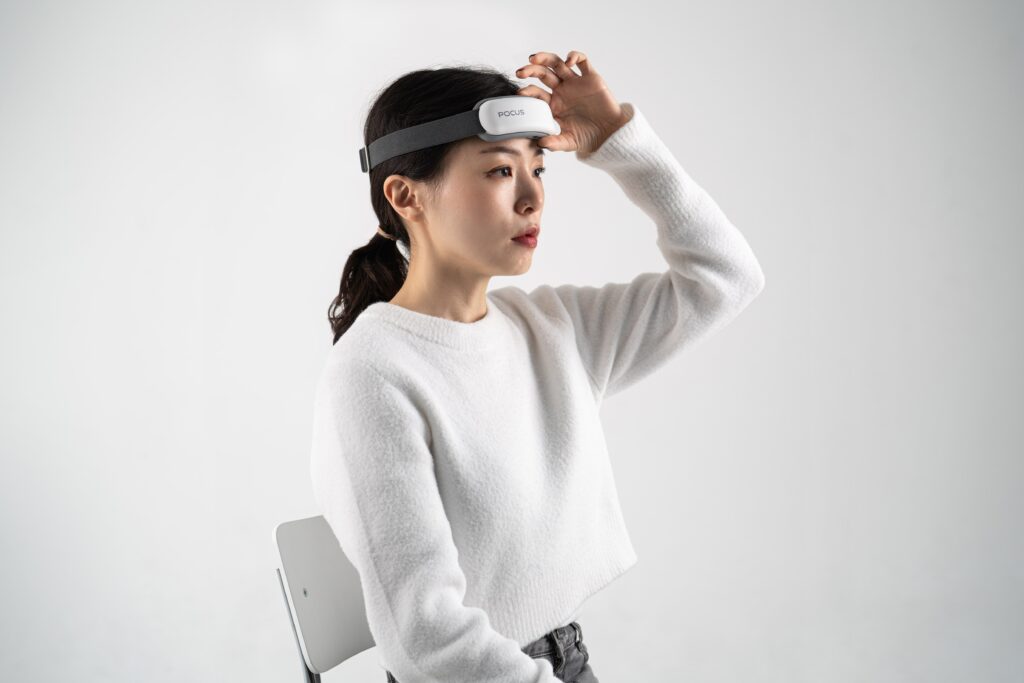
Smart Headband Powered by Neuromodulation
Watson & Company, a Seoul-based start-up founded in 2020, launched a mental health care hardware dubbed POCUS. POCUS is a smart headband that helps users relieve stress, improve their ability to concentrate on their short-term and long-term goals, and cure insomnia.
“Almost everyone on this planet would have experienced frustration or depression, but the conventional cure to those feelings has merely been medicine,” Hugh Kim, CEO and founder of Watson & Company, told 4i-mag during a phone interview.
“These depressed feelings can disturb one’s concentration [on a certain task] as well. This is where POCUS comes in to improve people’s mental health.”
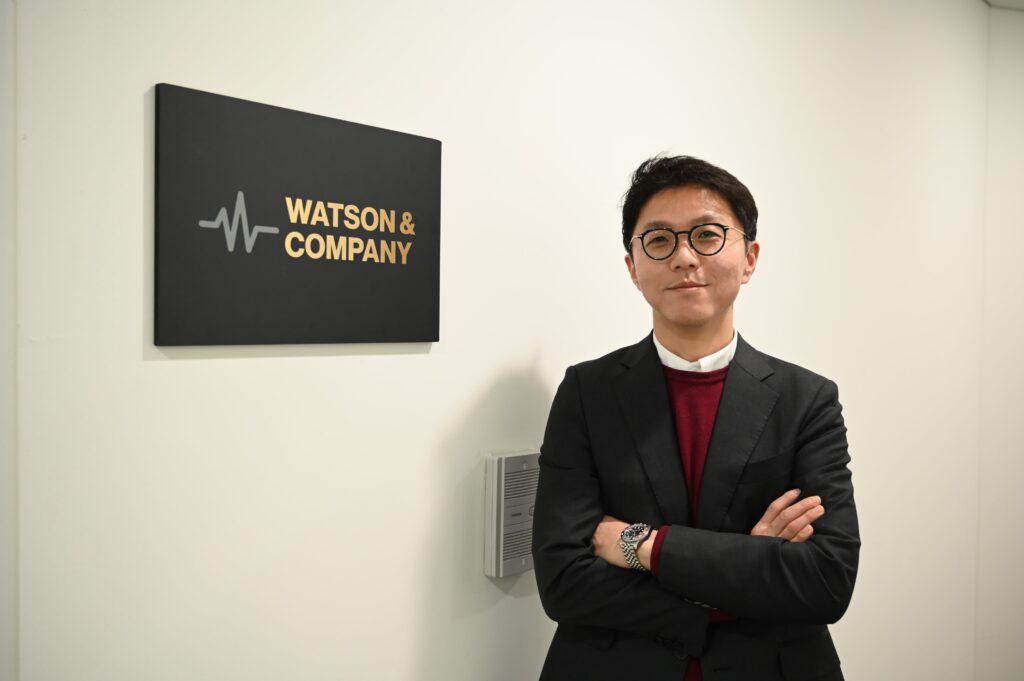
The way to use POCUS is quite simple. First, the user must wipe their forehead clean, using a towel. Then the user should put two hydrogel patches on the device, which assist the delivery of electric currents to the user, and wait for the device to make a beep sound. Finally, the user can press the power button, then press and hold the button again to start the 30-minute therapy. Users can do other activities, such as reading a book or listening to music, while the device is running.
Kim says that the main technology of POCUS is based on neuromodulation, which stimulates the frontal lobe of a user’s brain through physical methods, for example, electric currents or magnetic fields. By normalising or stimulating the nervous tissues of the brain, users can relieve their stress and recover from frustrating, depressing feelings, he adds.
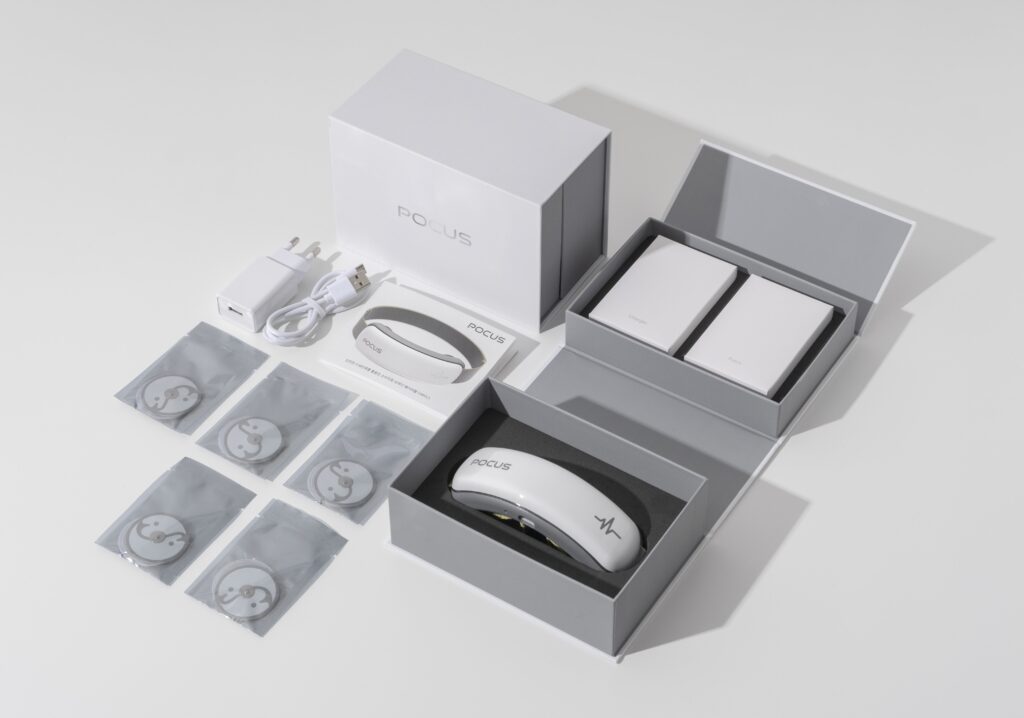
Neuromodulation is a health care method not yet well-known to the public, and it is still evolving. Nevertheless, Kim says the company’s device is completely safe to use since it is based on thousands of studies and researches. The development of POCUS was also advised and reviewed by many medical experts and doctors in South Korea.
The consumers seem to appreciate the introduction and growth of POCUS since its launch last November. While the official consumer report of the device will come out a couple of months later, Kim says he received great, positive feedback from hundreds of users. In addition, Watson & Company’s POCUS has received the 2021 Consumer Choice Grand Prize in health care, hosted by the Korea Consumer Association.
“These days, we’re receiving more orders from students who would like to enhance their concentration and working abilities,” Kim said.
“We may be a South Korea-based start-up now, but we soon will be able to reach out to global customers, too.”
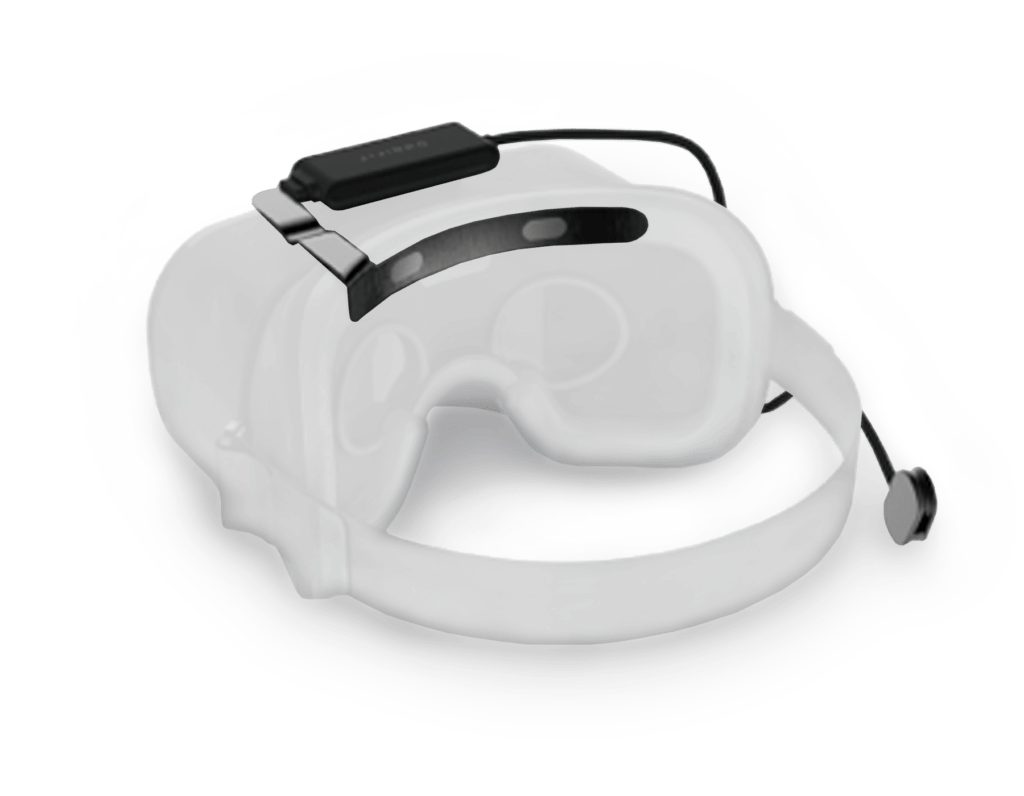
Courtesy of Omni C&S
VR Goggles for Mental Health Care
Omni C&S, another South Korean health care start-up founded in 2014, has been building wearable devices and mental health care services for those who cannot cope with mental illness on their own.
“In South Korea, people tend to avoid going to clinics or see therapists when they have mental health troubles or suffer from random difficulties,” Kim Yong-hoon, CEO of Omni C&S, said 4i-mag in a Zoom interview with 4i-mag.
“We tried to make safe, trustworthy devices for those who need help, by conducting many studies and participating in many national research and development projects. We are glad that our service could be registered as a health care service by the Ministry of Food and Drug Safety in South Korea,” he continued.
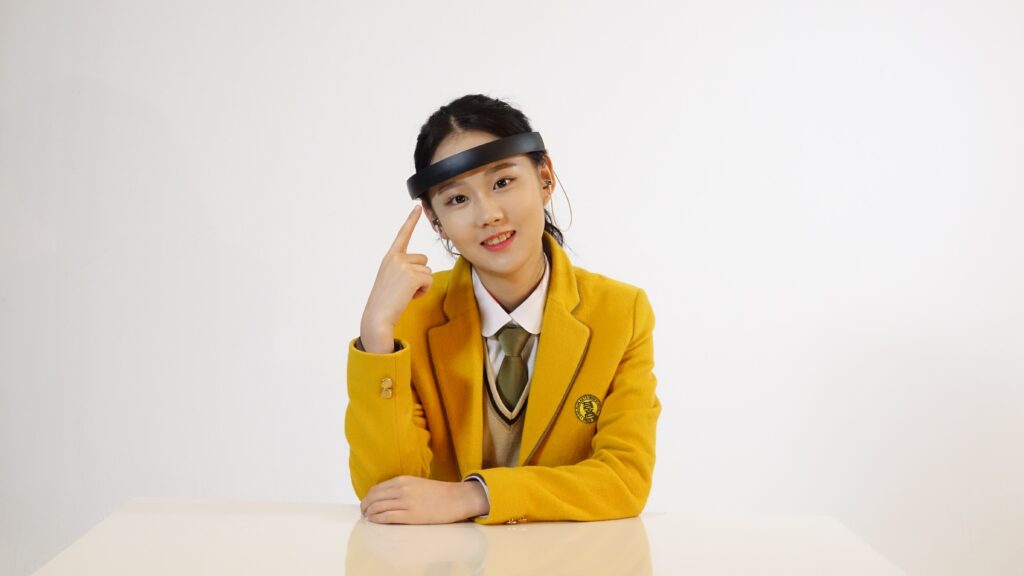
The company aims to cover from the early diagnosis of mental illness to the provision of treatment with its all-in-one platform “OmniFit”. Its platform can be represented in a four-stage cycle: detection, analysis, guidance, and treatment.
On the detection stage, OmniFit estimates the mental state of a user with the help of wearable devices that detect biological signals, such as photoplethysmogram (PPG), and written tests. The next stage, analysis, is where the platform gives a diagnosis to the user using quantitive and qualitative methods. On the guidance stage, the platform provides differentiated recommendations, depending on the severity of the user’s mental health issues. Lastly, the platform gives treatment via virtual training programmes or therapeutic sessions.
Out of many goods and services that Omni C&S introduced to the market since its foundation, what put the company in the limelight was its training programme that uses virtual reality (VR). Their wearable VR device, dubbed as VR Bio-Flex, provides mind control training programmes for those who suffer from mental illness.
“Our all-in-one platform can detect [and give solutions to] early symptoms of stress, dementia, hyperactive or impulsive behaviours, and depression,” Kim from Omni C&S said.
“There is no complete cure for these types of mental disorders. They also can happen without noticeable pre-symptoms. That’s why we wanted to make a platform that detects and prevents the disorders with a more scientific approach, instead of just taking standardised tests,” he added.
As of today, the company’s platform is used by over 1,500 companies and state-owned organisations.
Effect of COVID-19?
With the spread of COVID-19, people started to stay longer at their homes alone. As this self-isolation and social distancing become the “new normal”, some Korean experts coined the term “Corona Blue”, which is translated as feelings of depression and lethargy caused by lack of social interactions, and suggested it as one of the main causes of depression these days in South Korea.
Both companies, Watson & Company and Omni C&S, say their products can be a great help for those who are feeling anxious and depressed by spending longer hours alone behind their doors.
“With COVID-19, more people are suffering from severe stress and depression,” Kim from Watson & Company said. “These can cause other disorders, such as insomnia at night. Having no absolute cure for these disorders, POCUS can be a great help to those who want to improve their mental health,” he said.
“Of course, [developing and distributing] vaccines for COVID-19 are important,” Kim from Omni C&S said. “But we would need some time to look back at our mental health, too.”


